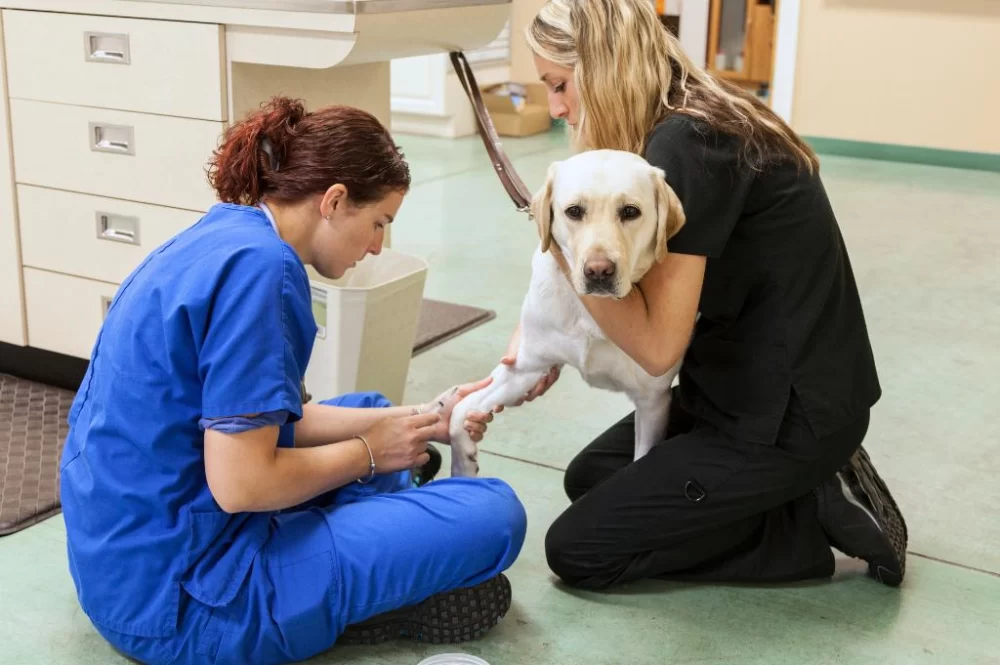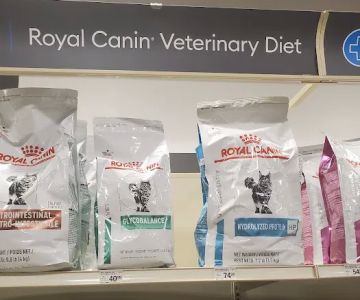Does Veterinary Count as Healthcare? Exploring the Relationship Between Animal and Human Healthcare
As a pet owner and someone passionate about healthcare, I've often wondered about the intersection between veterinary care and healthcare. When we think about healthcare, we typically think of human medicine, doctors, and hospitals. But what about veterinary care? Does veterinary medicine fall under the umbrella of healthcare? After all, animals—whether pets or livestock—are living beings that require medical attention, much like humans. In this article, I'll explore how veterinary care plays an important role in overall healthcare and why it’s just as crucial as human healthcare.
1. Defining Healthcare and Veterinary Medicine
Healthcare, at its core, is defined as the maintenance and improvement of physical and mental health, primarily through medical services. This generally refers to humans, but it’s important to understand that healthcare is a broad term that applies to the well-being of all living beings, not just people. Veterinary medicine, on the other hand, is the medical field dedicated to the diagnosis, treatment, and prevention of diseases in animals.
1.1 The Role of Veterinary Medicine in Animal Care
When I first started considering this question, I realized that veterinary medicine addresses many of the same principles as human healthcare. Veterinary professionals treat animals for injuries, illnesses, and diseases, provide preventive care like vaccinations, and conduct surgeries. This is similar to what healthcare providers do for humans. From my own experience, I’ve seen firsthand how much of a difference regular veterinary care makes in maintaining my pets’ health. I’ve visited animal hospitals where veterinarians act like human doctors, diagnosing conditions, offering medications, and even performing emergency surgeries.
1.2 The Connection Between Animal Health and Human Health
Interestingly, the health of animals and humans is interconnected in ways we often overlook. For instance, many diseases can jump between animals and humans, such as zoonotic diseases. In my own community, there have been instances where pets developed conditions that required treatment, but those conditions also posed a potential risk to humans. This is where veterinary medicine plays a crucial role in safeguarding both animal and human health. Preventive veterinary care helps avoid diseases that could otherwise spread to humans, making animal healthcare a vital part of broader public health efforts.
2. Veterinary Medicine as a Part of Public Health
One of the key aspects of veterinary care that I’ve come to appreciate is its impact on public health. Veterinary professionals don’t just treat pets and livestock—they also play an important role in controlling and preventing diseases that affect humans. Public health organizations around the world recognize that healthy animals lead to healthier humans, and veterinarians are critical in achieving this goal.
2.1 Zoonotic Disease Prevention
Zoonotic diseases, which are diseases that can be transmitted from animals to humans, are a prime example of why veterinary care is integral to public health. I remember hearing a story about a family who adopted a stray cat, only to later find out that the cat carried a disease that could easily spread to the human family members. This incident underscores the importance of ensuring that animals are properly cared for by veterinarians. Through vaccinations and treatments, veterinarians help prevent zoonotic diseases, protecting both animal and human populations from health risks.
2.2 Animal Vaccination Programs and Herd Immunity
Vaccination is another area where veterinary care directly contributes to human health. In many cases, veterinarians administer vaccines to prevent animals from contracting and spreading diseases that can affect humans. For example, rabies is a deadly disease that can be transmitted from animals to humans, but with widespread vaccination programs, veterinarians have significantly reduced the risk of rabies in domestic animals. In fact, in some areas where rabies was once common, pet vaccination programs have almost completely eliminated the disease. This shows how veterinary care helps safeguard entire communities, providing an indirect benefit to human health.
3. The Economic Impact of Veterinary Medicine
Beyond the direct health benefits, veterinary care also has a significant impact on the economy, particularly in relation to agriculture and livestock industries. I’ve witnessed how a sick herd of cattle can lead to economic losses for farmers, not only in terms of veterinary bills but also through loss of productivity and sales. By keeping animals healthy, veterinary medicine helps prevent financial losses and supports industries that rely on animals for food production.
3.1 Animal Health and Agriculture
Veterinary care is indispensable in agriculture, where livestock health directly impacts food security and the economy. Farmers rely on veterinarians to ensure the well-being of their animals, preventing the spread of disease that could wipe out entire herds or flocks. I once spoke to a local farmer who explained how his veterinarian’s early detection of a disease in his poultry prevented a major outbreak, saving both his business and the local food supply. In this case, the veterinary care provided was not just an individual service for the animals—it was an economic necessity that supported a whole community’s livelihood.
3.2 Veterinary Care for Pets and Companion Animals
On a more personal level, veterinary care for pets has significant economic importance. Millions of pet owners, like myself, rely on veterinarians to keep their pets healthy and happy. Pet care, including vaccinations, dental care, and regular check-ups, helps ensure that pets lead long, healthy lives. According to studies, pet owners spend billions of dollars annually on veterinary services, underscoring the importance of the veterinary field within the broader healthcare industry.
4. Veterinary Care as a Specialized Healthcare Field
While veterinary medicine is often categorized separately from human healthcare, the two fields share many similarities. From the methods of diagnosis to the use of advanced medical technology, veterinarians use many of the same tools that doctors do. In fact, many veterinarians specialize in specific areas of animal health, such as dermatology, orthopedics, and even cardiology. I’ve encountered veterinary specialists who are as highly trained and knowledgeable as medical doctors, providing care that is essential for the animals they treat.
4.1 Specialized Veterinary Care
Just like human healthcare, veterinary medicine has specialized fields. Some veterinarians focus solely on one type of animal, such as exotic pets, while others may specialize in treating horses, farm animals, or small animals like dogs and cats. During my experiences visiting different vets, I’ve noticed that specialists often provide an even higher level of care, much like a human cardiologist might for a person with heart issues. This level of specialization in veterinary care shows that the field is not only an important part of healthcare but also a highly developed area of medicine in its own right.
5. Final Thoughts on Veterinary and Healthcare
After exploring the topic of veterinary care and its relationship to healthcare, it’s clear to me that veterinary medicine is indeed a vital part of the healthcare ecosystem. Whether it’s preventing zoonotic diseases, contributing to public health through animal vaccination programs, or supporting agricultural industries, veterinarians play a crucial role in maintaining both animal and human health. While veterinary care is distinct from human healthcare, it is just as important in the broader context of healthcare as a whole. If you’re a pet owner, farmer, or someone who values the well-being of animals, supporting veterinary care is just as essential as supporting human healthcare. For more information on veterinary services, visit Your Trusted Vet Care for comprehensive care and advice.












